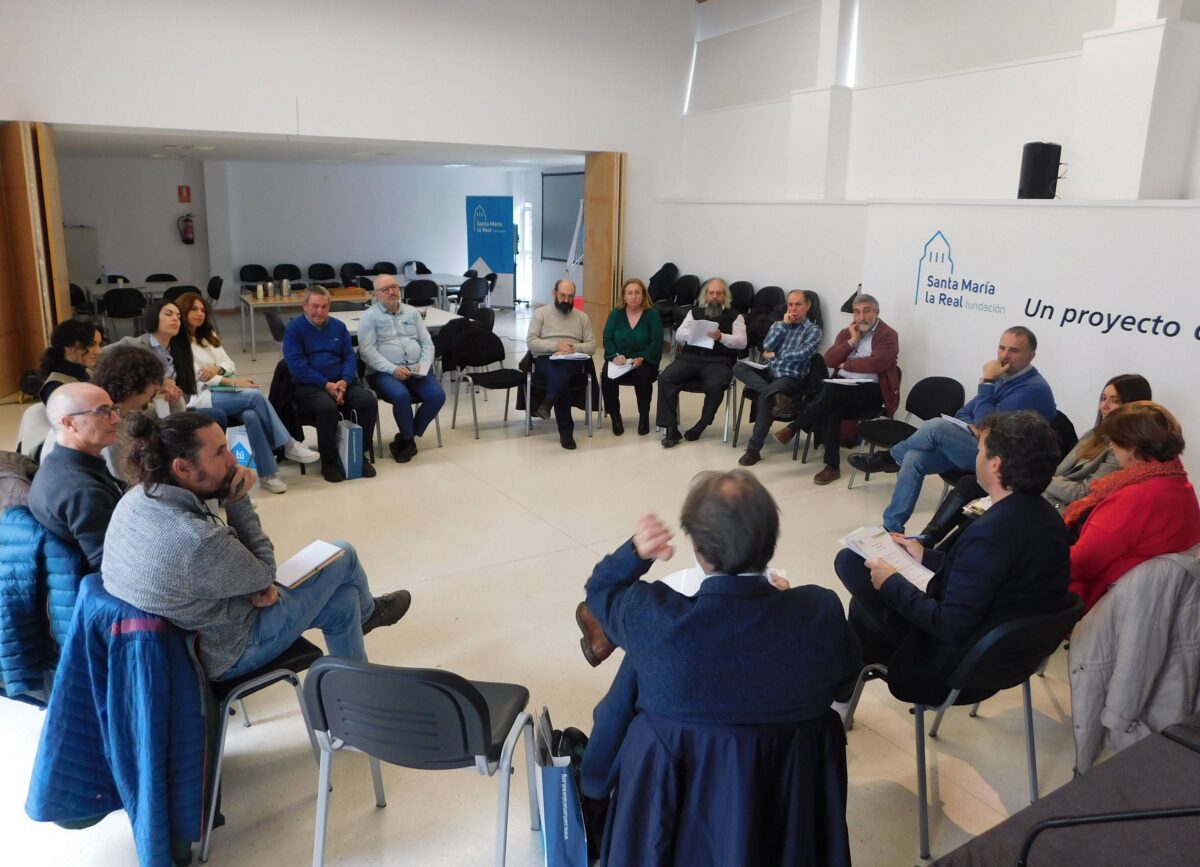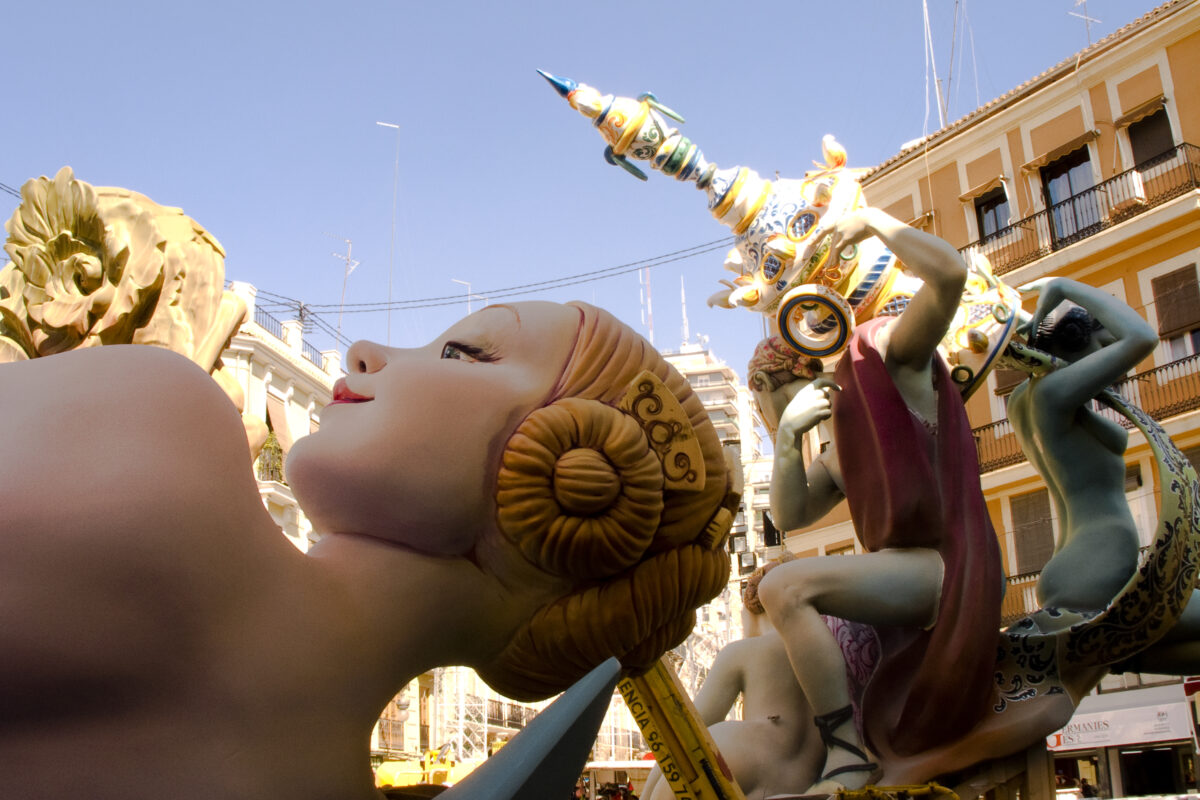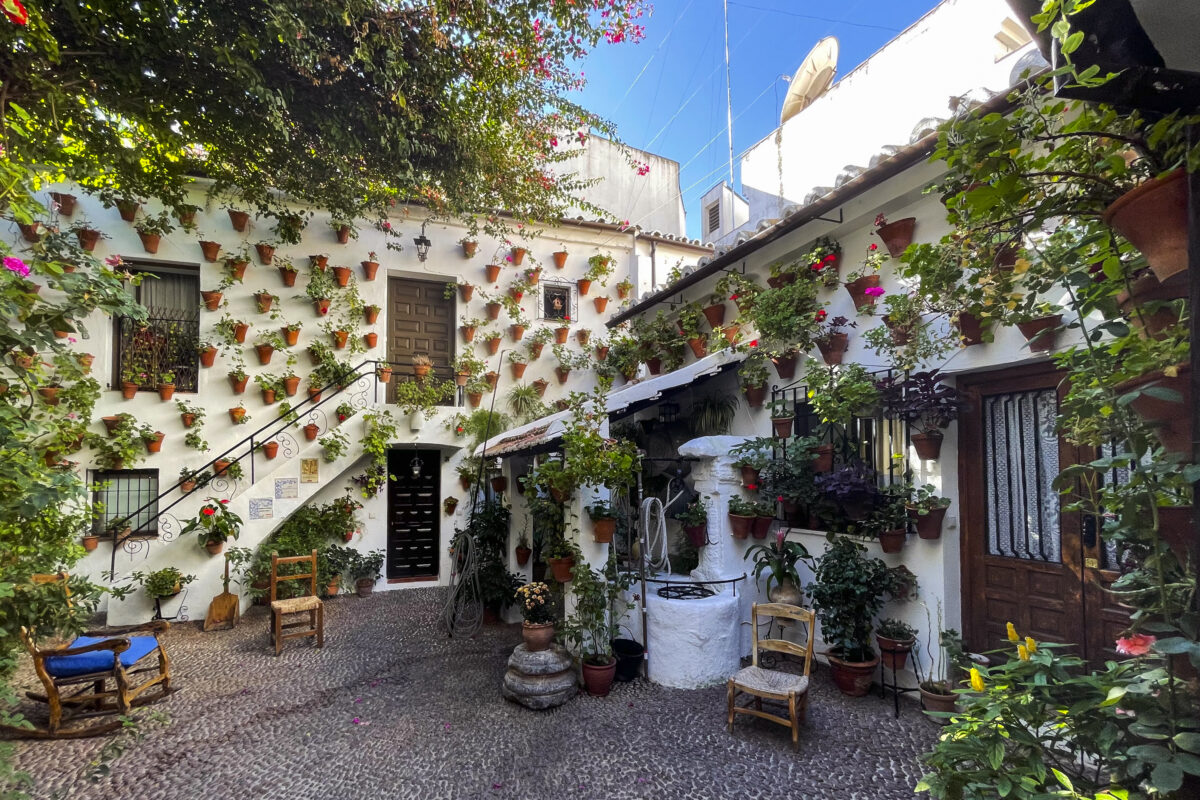The document, prepared by the team of the Santa María la Real Foundation as part of the European Green Heritage project, co-funded by the Erasmus + programme, gathers the recommendations of technicians and experts on the impact of climate change on intangible cultural heritage.
To what extent can climate change influence traditional dance, songs, recipes or oral storytelling? This is the subject of the European Green Heritage project, thanks to which the Santa María la Real Foundation has published a digital policy brief with specific guidelines and recommendations to prevent the effects of climate change on intangible cultural heritage, which were collected during a Policy Roundtable held in the Spanish town of Aguilar de Campoo on 22 and 23 November 2023.
Target group and content
Based on the recommendations of a group of technicians and professionals, the guide is aimed especially at local, regional, national and European administrations, as a set of suggestions that should guide and orientate decision-making in this field. However, according to the Santa María la Real Foundation, it may be of interest to anyone with an interest in the subject.
Specifically, six fields or areas of action are established. The first is that of education and awareness-raising, where it is proposed to incorporate an integral approach into educational plans that will enable intangible cultural heritage and climate change to be addressed from different perspectives, through different core subjects. At the same time, it is considered necessary to carry out actions aimed at an adult audience that address the interrelationship between sustainable practices, traditions and environmental impact.
Another aspect considered “essential” is the revision and updating of legislation and policies linked to climate change, incorporating cultural heritage considerations into environmental laws, addressing different levels and carrying out continuous monitoring to evaluate their effectiveness.
To ensure the proper conservation and management of intangible cultural heritage, the creation of new tools, the development of inventories, continuous training and support for research are advocated. Likewise, it is recommended that strategies be implemented that allow for better control of tourism in order to avoid a negative impact on the natural environment or on intangible heritage. It also stresses the importance of communication and dissemination to generate interest and raise awareness of the value of heritage and its relationship with climate change.
Specific recommendations
The policy brief closes with a series of specific recommendations, linked to three specific aspects: food customs; technical knowledge and skills; traditions and performances. Thus, it advocates supporting the development of sustainable agricultural practices and traditional crafts, reducing the use of pesticides and promoting the genetic diversity of crops, preserving local varieties and traditional cultivation practices. It also calls for the inclusion of traditional knowledge in environmental policies and the creation of a climate-cultural register to determine and document how climate change is affecting festivities and traditions.
Green Heritage
Launched in 2022, the GreenHeritage project, coordinated by the Consiglio Nazionale delle Ricerche in Italy, aims to detect and measure the effects of climate change on the intangible cultural heritage, to warn about them, proposing innovative and practical solutions that serve to raise awareness among the general public and public authorities. The project will run until 2025, and will be materialised in a methodology for the development of an action plan and a common approach at European level. In addition, an interactive map will be created to distinguish European regions where climate change has already started to affect the survival of intangible heritage.
Together with the Foundation and the Consiglio Nazionale delle Ricerche of Italy, the consortium that shapes Green Heritage is completed by: CUEBC Centro Universitario Europeo per i Beni Culturali (IT); CMCC Fondazione Centro Euromediterraneo sui Cambiamenti Climatici (IT); ReadLab P.C. Research Innovation and Development Lab (GR); ILFA LU The Institute of Literature, Folklore and Art of the University of Latvia (LV); UAEGEAN University of the Aegean (GR); CANDIDE International (BE), ELORIS S.A. Research, Education, Innovation and Development Company of the North Aegean Region (GR); ALLI Athens Lifelong Learning Institute (GR). The project is co-funded by the European Union, through the Erasmus + programme.
- You can read the policy brief here.



